Fake news. Real research.
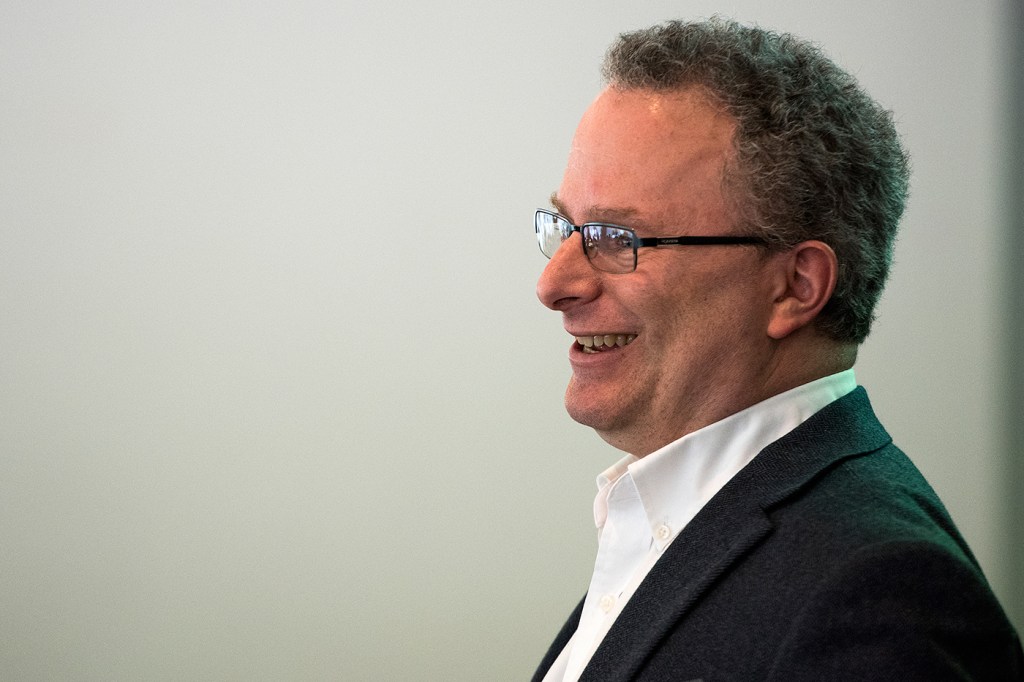
The concept of “fake news” has been in the real news almost daily for more than a year. Just Tuesday, Google announced the “Google News Initiative,” an effort to highlight accurate journalism and fight misinformation. This week, a former employee of the political consulting firm Cambridge Analytica—which came under scrutiny over the weekend when it was revealed it had used the Facebook data of more than 50 million people to create targeted political ads—weighed in on whether the company planted fake news.
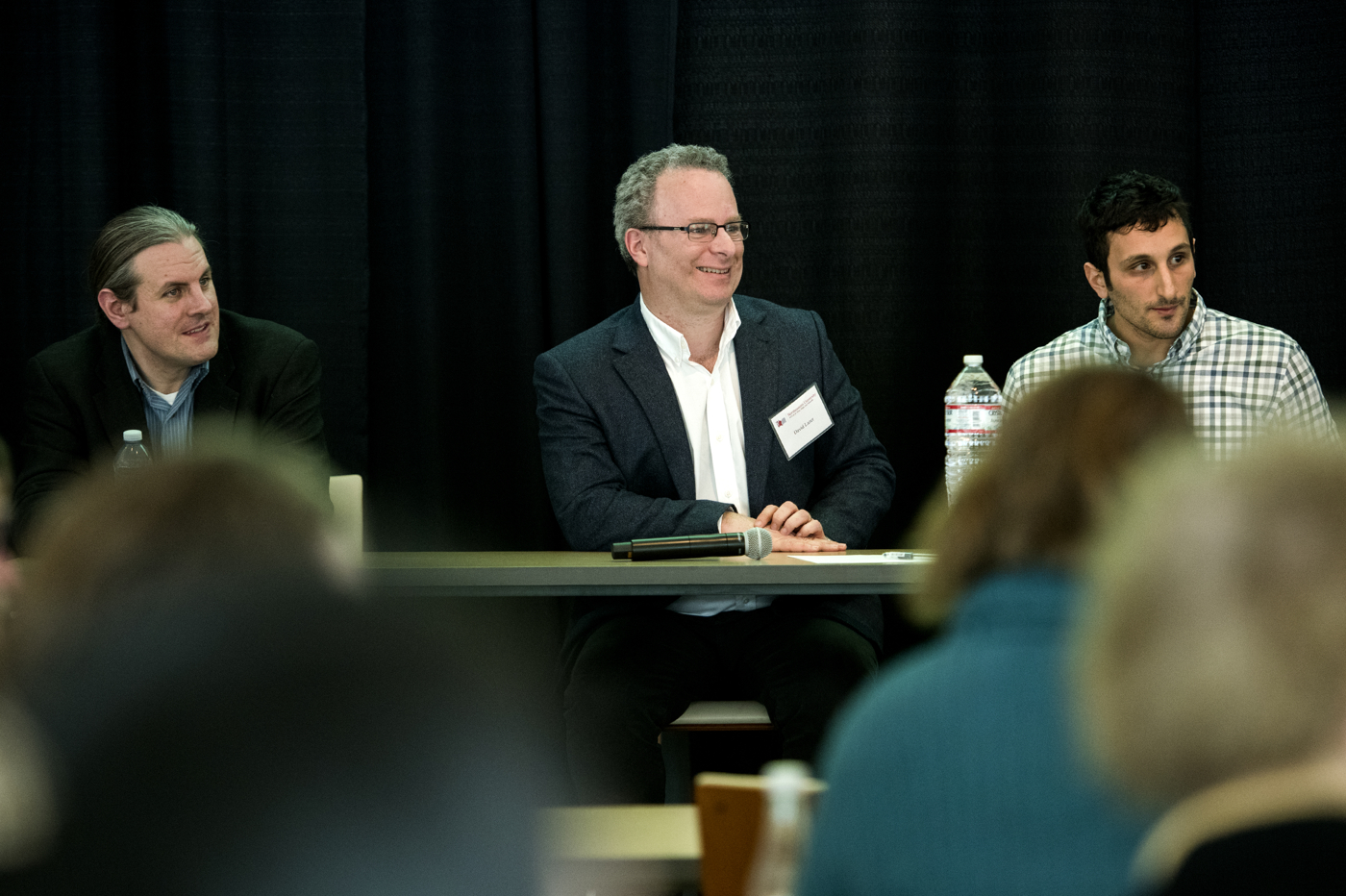
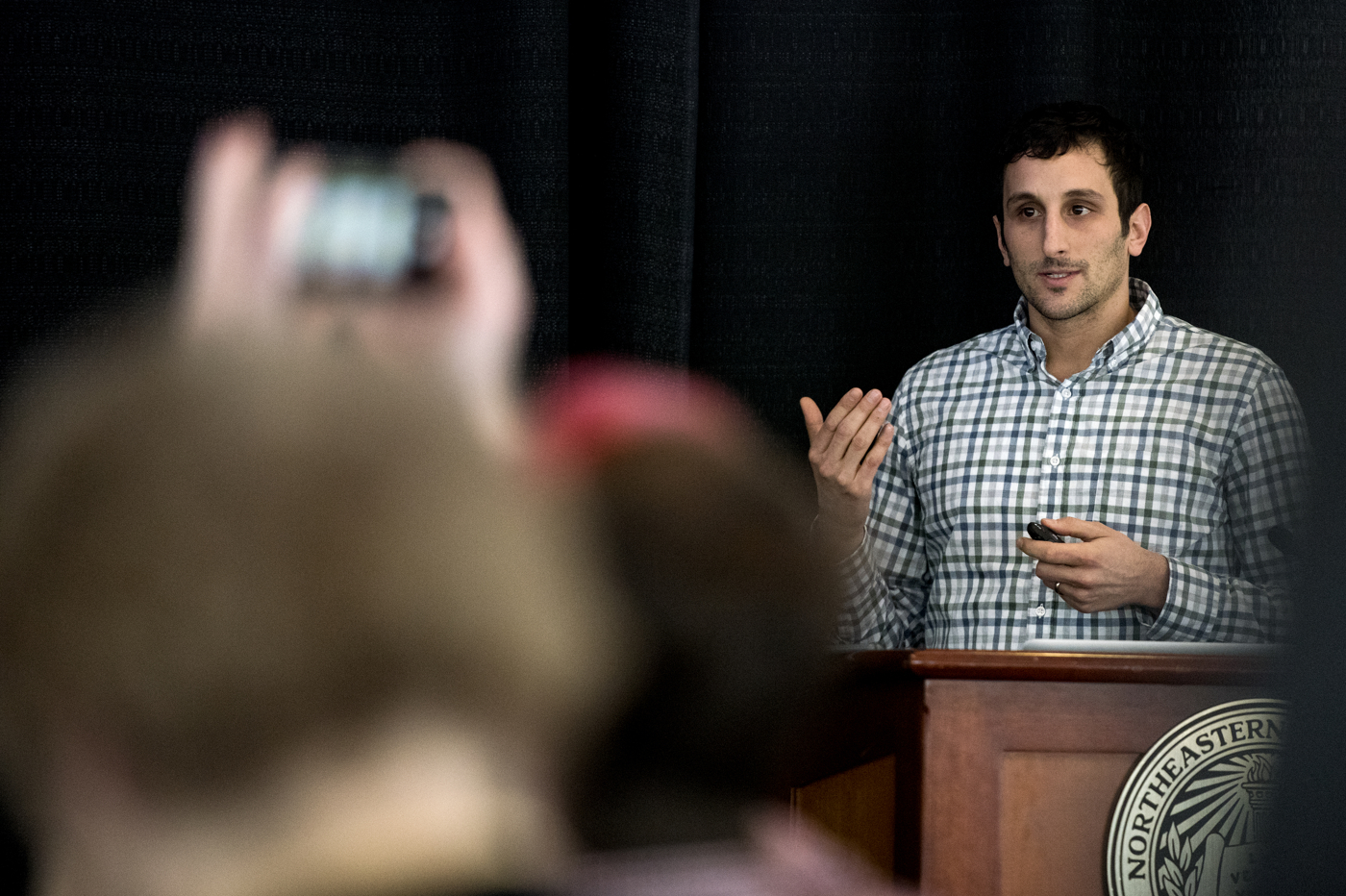
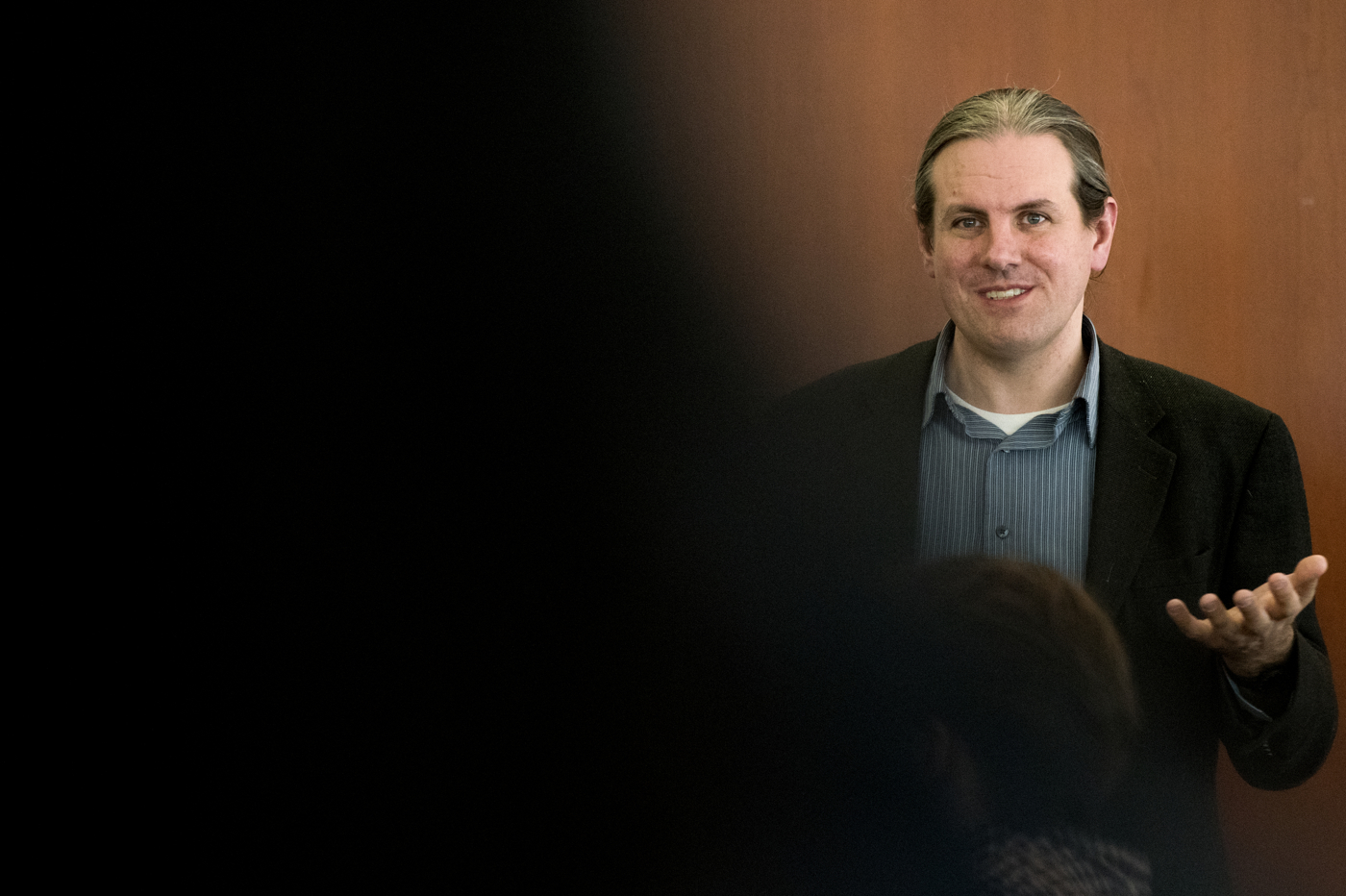
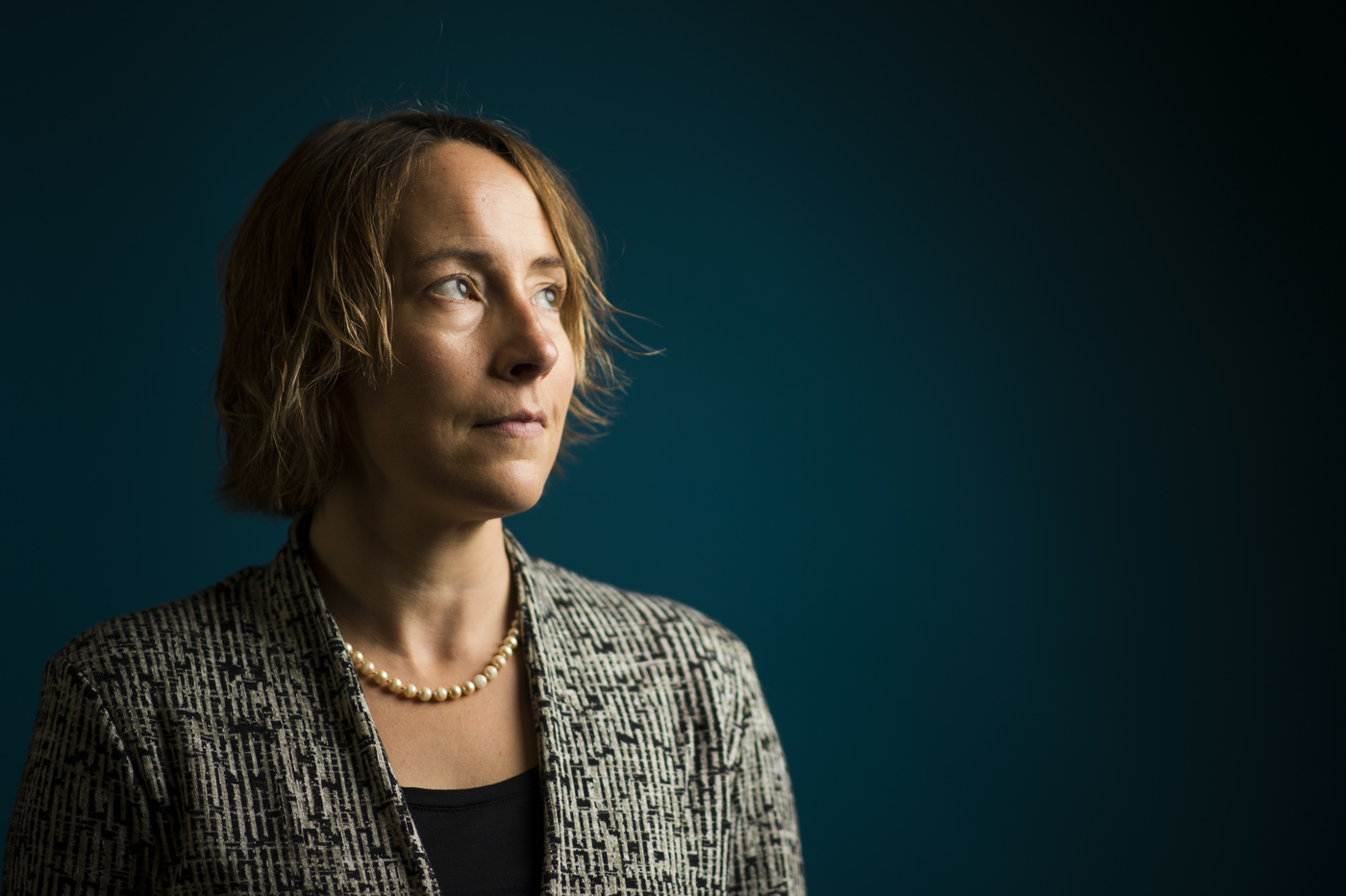
While separating fact from misinformation has always been critical, the current social and political climate made the topic especially pertinent for this year’s NULab conference, organizers said. The daylong conference showcased the work of researchers in Northeastern’s lab for digital humanities and computational social science—work dedicated to understanding and combatting the spread of fake news.
The research projects presented at the conference were still in progress, and therefore don’t represent concrete findings as of yet. Here’s what some of that research is exploring.
The pathways of fake news
Lab director David Lazer is working to determine the frequency of fake news consumed by voters in the 2016 election, who was reading it, and which other websites were visited by voters who were exposed to fake news.
Lazer, a professor of political science and computer and information science, is working with several other researchers to cross-reference Twitter accounts with voter records. Their goal is to establish a pool of users they could be fairly confident were actual people and not bots—a technique he’s used in the past to study how fake news spreads.
What they’re seeing from the research so far is “distinct (ideological) neighborhoods of consumption,” Lazer said, where people who consumed fake news were more likely to consume a lot of it.
Local-Mobile paradox: Missed innovation opportunities and the future of local news
As social media platforms are increasingly saturated with fake news, local and hyperlocal news outlets are becoming more vital to the health of local communities. A decade after the advent of the iPhone, however, assistant professor of journalism Meg Heckman and a team are exploring how the mobile transition of news consumption is playing out or failing to play out at daily and nondaily newspapers in rural and suburban communities.
So far, her research bears out a mixed picture—there are some bright spots among small news organizations implementing mobile strategies, as well as “the kinds of weaknesses that could further damage local newspapers’ ability to fulfill their crucial role as community watchdogs and storytellers,” Heckman said.
Trajectories of hate: Mapping cultural and biological racism on Twitter
Nicholas Beauchamp, assistant professor of political science, is working with a team to determine whether the creation and consumption of hateful speech is a cause or an effect of hateful ideology—a phenomenon that might parallel the ideological motivations behind the creation and consumption of fake news, he said.
Why keep arguing? Predicting participation in political conversations online
Sarah Shugars, a doctoral student working in the Network Science Institute, noted that fake news “doesn’t happen in a vacuum.
“People read, share, and argue about fake news online all the time,” she said. Why do people argue online, though? And what are they about? Those are the central questions she’s exploring.
So far, her findings indicate that sometimes in the middle of an online argument, just one comment meant to steer the conversation back to civility can improve the overall discourse greatly.
Conspiracy propagation and fake news: A sociopsychological perspective
Costas Panagopoulos, professor of political science and director of big data and quantitative initiatives in the College of Social Sciences and Humanities, is studying the role of political ideology in driving conspiratorial mindsets, a field in which very little research currently exists, he said.
He and other researchers are exploring whether people on the ends of the political and ideological spectrums—hard left and right-wingers—have a greater tendency to believe and propagate conspiracy theories.





